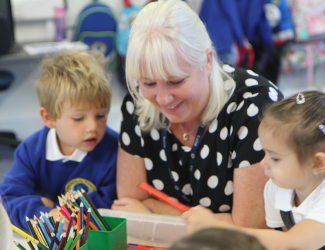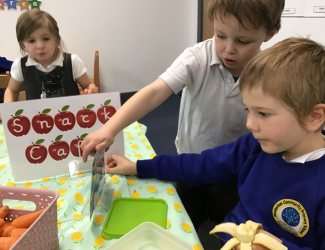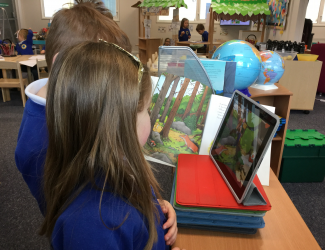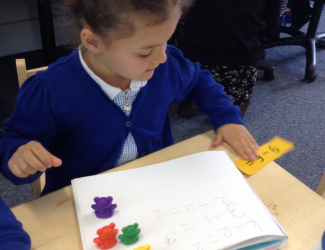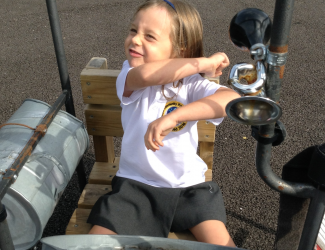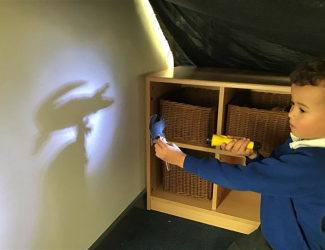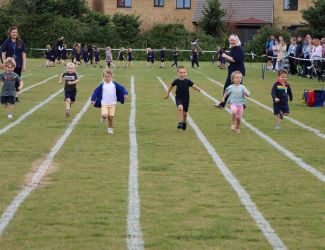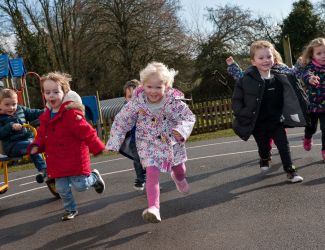Reception Communication and Language Curriculum
Children will be taught...
EYFS Development Matters Statements Three to Four Year Olds
- Enjoy listening to longer stories and can remember much of what happens.
- Pay attention to more than one thing at a time, which can be difficult.
- Use a wider range of vocabulary.
- Understand a question or instruction that has two parts, such as “Get your coat and wait at the door”.
- Understand ‘why’ questions, like: “Why do you think the caterpillar got so fat?”
- Sing a large repertoire of songs.
- Know many rhymes, be able to talk about familiar books, and be able to tell a long story.
- Develop their communication, but may continue to have problems with irregular tenses and plurals, such as ‘runned’ for ‘ran’, ‘swimmed’ for ‘swam’.
- Develop their pronunciation but may have problems saying:
- Some sounds: r, j, th, ch, and sh
- Multisyllabic words such as ‘pterodactyl’, ‘planetarium’ or ‘hippopotamus’
- Use longer sentences of four to six words.
- Be able to express a point of view and to debate when they disagree with an adult or a friend, using words as well as actions.
- Start a conversation with an adult or a friend and continue it for many turns.
- Use talk to organise themselves and their play: “Let’s go on a bus... you sit there... I’ll be the driver.”
EYFS Development Matters Statements Children in Reception
- Understand how to listen carefully and why listening is important.
- Learn new vocabulary.
- Use new vocabulary through the day.
- Ask questions to find out more and to check they understand what has been said to them.
- Articulate their ideas and thoughts in well-formed sentences.
- Connect one idea or action to another using a range of connectives.
- Describe events in some detail.
- Use talk to help work out problems and organise thinking and activities, and to explain how things work and why they might happen.
- Develop social phrases.
- Engage in story times.
- Listen to and talk about stories to build familiarity and understanding.
- Retell the story, once they have developed a deep familiarity with the text, some as exact repetition and some in their own words.
- Use new vocabulary in different contexts.
- Listen carefully to rhymes and songs, paying attention to how they sound.
- Learn rhymes, poems and songs..
- Engage in non-fiction books.
- Listen to and talk about selected non-fiction to develop a deep familiarity with new knowledge and vocabulary.
Early Learning Goals
Listening, Attention and Understanding
- Listen attentively and respond to what they hear with relevant questions, comments and actions when being read to and during whole class discussions and small group interactions.
- Make comments about what they have heard and ask questions to clarify their understanding.
- Hold conversation when engaged in back-and-forth exchanges with their teacher and peers.
Speaking
- Participate in small group, class and one-to-one discussions, offering their own ideas, using recently introduced vocabulary.
- Offer explanations for why things might happen, making use of recently introduced vocabulary from stories, non-fiction, rhymes and poems when appropriate.
- Express their ideas and feelings about their experiences using full sentences, including use of past, present and future tenses and making use of conjunctions, with modelling and support from their teacher.

